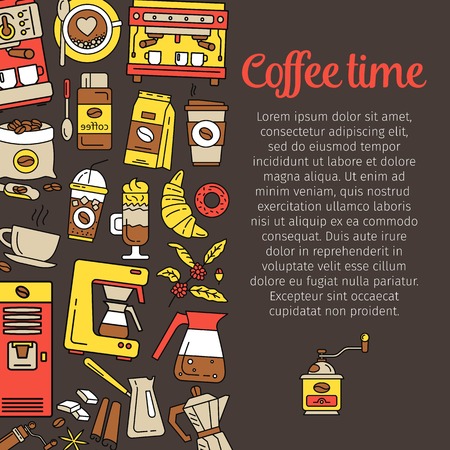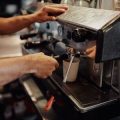A Nation Awakens: Britains Evolving Coffee Culture
Once the land of strong tea and quick spoonfuls of instant granules, Britain is now experiencing a remarkable transformation in its coffee culture. Gone are the days when a lukewarm mug of instant was the default office pick-me-up; across bustling city centres and quiet market towns alike, the British palate is awakening to an entirely new world of flavour and ritual. Artisan roasters, independent cafés, and expert baristas have begun to dot the high streets, each serving up meticulously brewed cups that rival anything found in Milan or Melbourne. This evolution is not just about taste—its reshaping social habits, workplace rituals, and even the daily rhythms of professionals from London’s financial district to Edinburgh’s creative hubs. As we embark on this journey through Britain’s professional sectors, we’ll explore how coffee preferences reflect deeper shifts in lifestyle and values, setting the scene for a caffeinated adventure that captures both tradition and modern sophistication.
2. Creative Quarters: The Rise of Specialty Coffee in the Arts & Media
In the heart of Britain’s creative districts—be it London’s Shoreditch, Manchester’s Northern Quarter, or Glasgow’s Merchant City—the aroma of freshly ground beans has become as essential as the paintbrush or the camera lens. Within these vibrant enclaves, professionals from the arts and media industries have cultivated a deep appreciation for specialty coffee, transforming their daily brew from a mere pick-me-up into a ritual that reflects both discernment and identity.
From Single-Origin to Signature Style
The preference here leans decisively towards single-origin pours, flat whites with perfectly textured microfoam, and bespoke filter coffees. Independent espresso bars have become unofficial studios and think-tanks, where creative minds gather to brainstorm over Chemex brews or V60 drips. The emphasis is not just on caffeine content but also on provenance, tasting notes, and ethical sourcing—a mirror to the sector’s appreciation for authenticity and narrative.
Coffee Preferences in Creative Sectors
| Drink of Choice | Why it Resonates | Where to Find It |
|---|---|---|
| Single-Origin Espresso | Showcases unique flavours; aligns with artistic individuality | Independent coffee shops; pop-up roasters |
| Flat White | Smooth texture; balance between milk and espresso matches creative finesse | Trendy cafes; gallery-adjacent bars |
| Pour-Over (V60/Chemex) | Slow process encourages mindfulness and conversation | Boutique coffeehouses; co-working spaces |
| Iced Filter Coffee | Seasonal favourite; refreshing yet complex in flavour | Market stalls; art festivals |
Aesthetic Meets Functionality
The décor of these coffee havens is no afterthought either—Scandi-inspired minimalism, reclaimed wood, local artwork, and curated playlists all contribute to an atmosphere where creativity thrives. For many designers, writers, filmmakers, and musicians, their go-to café is more than a pitstop; it’s an extension of their studio and a place where inspiration percolates as freely as the coffee itself.

3. Corporate Sips: Office Rituals and the Ubiquity of Instant Coffee
Step into any British office, from London’s glassy financial towers to small-town solicitors’ firms, and you’ll be met with a familiar sight: the steadfast jar of instant coffee perched on the communal kitchen counter. For decades, this humble staple has fuelled the nation’s nine-to-fivers, prized for its remarkable blend of convenience and comforting predictability. There’s a certain camaraderie in sharing a cuppa stirred from granules—colleagues cluster around kettles during mid-morning breaks, each perfecting their own milk-to-coffee ratio, often swapping banter as much as beverages.
Yet even as instant coffee remains an integral part of the UK’s office culture—a symbol of efficiency and togetherness—the corporate landscape is gradually evolving. The rise of bean-to-cup machines has begun to percolate through boardrooms and breakrooms alike, signalling a subtle but significant shift in workplace coffee rituals. No longer just the domain of trendy tech startups or creative agencies in Shoreditch, these machines now grace everything from regional council offices to multinational headquarters, offering freshly ground beans at the touch of a button.
This transition reflects more than just changing tastes; it mirrors broader shifts in work culture itself. As companies place greater emphasis on employee well-being and workplace perks, providing high-quality coffee becomes both a statement and an incentive. Still, for many British workers, there’s enduring comfort in the simplicity of instant—the clink of the spoon against the mug, the faint aroma that signals a pause in a busy day. Whether embraced for speed or savoured for flavour, office coffee in Britain remains a ritual steeped in both tradition and transformation.
4. Craft, Care, and the Service Sector: Coffee as Community
If you wander into a bustling café just off Oxford Street or step behind the scenes in a hospital’s break room, you’ll quickly realise that for those working in hospitality, retail, and healthcare across Britain, the daily brew is far more than a caffeine fix—its a ritual that binds colleagues and sparks camaraderie.
The Ubiquity of the Cuppa
Within these sectors, coffee and tea are not just personal choices but communal lifelines. Whether it’s the classic builder’s tea—strong, sweet, often brewed to stand up a spoon—or a robust Americano hurriedly sipped between shifts, each cup serves as both fuel and social glue.
Popular Brews Across Sectors
| Sector | Favourite Drink | Social Rituals |
|---|---|---|
| Hospitality | Flat White / Americano | Coffee breaks as team briefings; latte art contests among baristas |
| Retail | Builder’s Tea / Instant Coffee | Mug-sharing in staff rooms; “kettle on?” as an invitation to chat |
| Healthcare | Strong Filter Coffee / Tea with two sugars | Night shift rounds; thermos flasks passed around during busy hours |
The Social Heartbeat of the Workplace
No matter the drink of choice, what truly matters is the moment itself—a few precious minutes carved out from relentless schedules to gather by the kettle or coffee machine. These moments foster solidarity and offer an opportunity for workers to swap stories, share advice, or simply commiserate over a long day. In British workplaces, offering someone a cuppa remains one of the simplest yet most meaningful gestures—a small act of kindness that can brighten even the greyest afternoon.
5. The Tech Crowd: Coffee as a Productivity Hack
Step into any of London’s bustling tech hubs—from Old Street’s Silicon Roundabout to the creative co-working spaces in Shoreditch—and you’ll find coffee is far more than just a morning ritual. Here, caffeine is both fuel and a marker of culture, helping to power the capital’s digital innovators through sprints, stand-ups, and brainstorming sessions.
The Rise of Pour-Over Perfectionism
Forget instant or bog-standard drip: within the city’s start-up ecosystem, pour-over coffee has become something of a badge of honour. Baristas wield gooseneck kettles with almost algorithmic precision, drawing out nuanced notes from ethically sourced beans. This artisanal approach mirrors the sector’s obsession with optimisation—each cup carefully calibrated for clarity and kick.
Oat Milk Lattes: The Default Choice
Walk into any tech-centric café and you’ll likely overhear orders for oat milk lattes echoing above the gentle hum of laptops. Oat milk’s sustainable credentials and creamy texture have made it the default ‘milk’ for coders and designers alike. It’s no longer an alternative; it’s the norm—a nod to both eco-consciousness and contemporary taste.
Café Culture as Collaboration
In these collaborative workspaces, cafés double as informal boardrooms. Meetings are held over flat whites, Slack notifications ping between sips, and big ideas are hatched at communal tables bathed in sunlight. For Britain’s tech professionals, coffee isn’t just about keeping energy levels up; it’s woven into the very fabric of innovation, networking, and community-building. The right brew signals not only personal taste but also a collective identity—where every cup is part productivity hack, part social glue.
6. From Local Cafés to High Streets: The Role of Place in Shaping Preference
From the windswept harbours of Cornish seaside towns to the creative pulse of Manchester’s Northern Quarter, Britain’s coffee culture is a tapestry woven from geography, community, and an ever-growing passion for quality. Coffee preferences don’t just reflect individual taste—they’re deeply rooted in where people live and work, shaped by the rhythm of local life and the personalities of independent roasters dotting the landscape.
Cornwall’s Coastal Comforts
In Cornwall, morning rituals often begin with the gentle hum of sea breeze and the aroma of locally roasted beans brewed in family-run cafés. Here, cafés serve as community hubs—places where fishermen swap stories over flat whites and freelancers linger with a Chemex by sunlit windows. The emphasis on provenance runs deep: single-origin coffees are celebrated, and a sense of pride accompanies every cup made with beans sourced from ethical Cornish roasteries.
The Rise of Indie Roasters
Travel north and you’ll find Manchester’s Northern Quarter buzzing with indie coffee shops, each with its own aesthetic and artisanal flair. This neighbourhood has become synonymous with creativity—its exposed-brick cafés double as art galleries, and baristas wield pour-over kettles like artists at their easels. Manchester’s love affair with specialty coffee is fuelled by local roasters who experiment boldly, catering to a clientele that favours everything from silky cortados to complex filter brews.
High Streets & Heritage
On high streets across Britain—from Edinburgh’s cobbled lanes to Bristol’s colourful terraces—coffee houses both old and new shape daily routines. Chain cafés offer consistency for hurried professionals, but it’s the independent spots that anchor neighbourhood identity. In London’s Shoreditch or Birmingham’s Jewellery Quarter, your choice between an artisan espresso or an instant cuppa often says as much about your professional sector as it does your postcode.
A Patchwork of Tastes
Ultimately, Britain’s coffee identity is fiercely local yet globally inspired. Geography determines not only what’s in your cup, but also how you drink it—whether it’s a quick takeaway on a bustling commuter route or a leisurely hand-poured brew savoured in a quiet market town café. As local roasters and indie shops continue to flourish from coast to city centre, they ensure that each region—and every profession—can find its perfect blend.
7. Beyond the Cup: Coffee, Sustainability, and Ethical Sourcing
As Britain’s professional sectors grow more discerning in their coffee choices, a new layer of consciousness has emerged—one that extends far beyond flavour notes and brewing methods. Today, the British workplace is abuzz with conversations about sustainability, ethical sourcing, and environmental responsibility. It’s not just what’s in the cup that matters, but how it got there.
Fair Trade as a Professional Priority
In boardrooms from London to Manchester, fair trade certification is increasingly seen as a non-negotiable standard. Professionals in finance and legal sectors often champion fair trade beans, recognising that ethical supply chains reflect well on corporate values and employee morale. This shift isn’t merely performative; it’s part of a broader movement towards transparency and global responsibility—an ethos that aligns perfectly with Britain’s growing appetite for artisanal coffee experiences.
The Rise of Reusable Cups
The classic British “cuppa” now comes with an eco-conscious twist. Across tech hubs in Cambridge and creative studios in Bristol, reusable cups have become both a fashion statement and a moral imperative. Many offices now incentivise staff to bring their own mugs or branded keep-cups—a small gesture with substantial impact on single-use waste reduction. This trend reflects a collective understanding that every coffee break is an opportunity to make sustainable choices.
Eco-Conscious Roasting: The New Gold Standard
Roasteries across Britain are responding to demand for greener practices by investing in low-emission roasting technology and prioritising direct trade relationships with growers. In sectors such as architecture and design, where innovation meets aesthetics, these eco-friendly roasters have become preferred partners—highlighting that modern preferences are shaped as much by social values as by sensory delight.
Ultimately, today’s British professionals are redefining coffee culture. Whether choosing fair trade beans, sipping from reusable vessels, or supporting sustainable roasters, they’re proving that the future of coffee is not just about taste—but also about integrity and intention.


